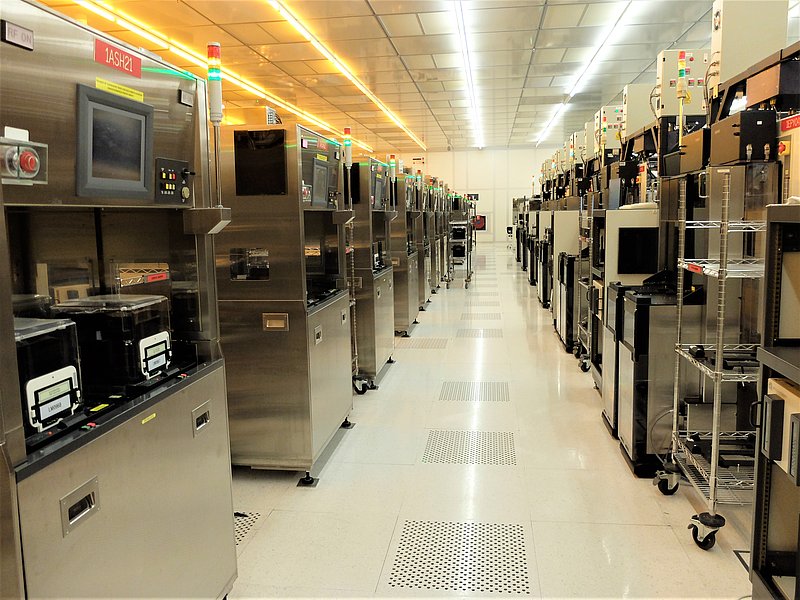Outsourcing Solutions
Foundries typically provide process technologies and design environments for customers to develop their products in those technologies. However, there might be situations where customers already have existing products that need a new home for various reasons. These often result in very specific approaches to meet that need.
BintangChip is your trusted partner for such “outsourcing” cases, which we distinguish from our “ordinary” foundry business. For over 20 years, we have been satisfying our customers’ need to outsource single products, whole product portfolios or even complete productions. To this end, we offer various engagement models on how to organize the outsourcing in practice.
Products might need a new home because:
- There is a need for a second source for strategic products.
- Internal capacities are required for other products.
- Internal fabs do not (or no longer) offer the cost structure required to compete in the market.
- The respective internal fab is planned for closure.
- Integrated device manufacturers (IDM) want to become fabless.
How does it work?
- Existing customer products are transferred together with the corresponding process technology to one of our facilities.
- We provide foundry services to the product owner or their customers.
Why BintangChip?
- BintangChip offers internal second sourcing for most of its technology platforms.
- BintangChip enables the outsourcing of entire product portfolios.
- BintangChip is an experienced partner supporting a variety of “fab-light” or fabless strategies.
- BintangChip has a track record of over 60 successful technology transfers, including more than 30 customer-specific process installations in the past 20 years.
Outsourcing Scenarios
Typical scenarios for outsourcing products to a foundry
-
Need for a second source
End customers often require dual sourcing, typically from different geographical regions, for supply security reasons. To this end, customers can establish a second source with BintangChip in parallel to their own fab. Alternatively, we also offer double sourcing for many technologies within our fab portfolio.
-
Reassignment of internal capacity
Whenever more strategic products demand larger capacities, less strategic products or products with limited volume or residual lifetime have to be moved to other fabs to free up that scarce capacity.
-
Unsatisfactory internal cost structure
Internal fabs, especially those not fully utilized, can create product costs that no longer allow competitiveness in the market.Transferring load management and the corresponding cost optimization to foundries that can better leverage through a multitude of products and technologies is the best way forward.
-
Planned fab closure
Economic or technical reasons can lead to a fab no longer being able to operate profitably, ending its economic life. Especially when many products sourced from the fab move to feature sizes beyond its capabilities, the remaining products have to be transferred to other fabs to enable a closure or complete revamp of the outdated fab.
-
Going fabless
While countering insufficient utilization and technology migration to smaller feature sizes might be two reasons to close an internal fab, a complete change of business model from IDM to fabless supplier will yield other benefits, including higher valuations and market capitalization for fabless companies, reflecting the typically lower level of risk exposure.
Engagement Models
Potential engagement models for outsourcing
Product transfer
An existing product including the corresponding customer process technology is transferred to one of our facilities.
Transfer of tools or tool set
Single existing tools or complete tool sets can be transferred from a customer fab to one of our facilities, either as consigned tools or sold tools. This applies in particular if specific capabilities required to manufacture the transferred product are not available in our fab.
Investment into captive capacity
Outsourcing customers can secure capacity at BintangChip through investment into their “own” tools.
Fab transfer
Under certain circumstances, we might consider the option of taking over the existing customer fab rather than transferring products and processes to one of our facilities.
Product porting
Existing products are redesigned using our open-platform process technologies and thus “ported” to a process available at BintangChip. This saves time compared to a complete product transfer requiring a custom technology transfer.

Capabilities
We provide a total manufacturing capacity of more than 1 million 200 mm-equivalent wafers per year. Details on each of our fabs can be found here.
Our offer includes:
- Regular cross-site transfers to enable double sourcing for BintangChip corporate and customer-specific process technologies
- Process technology transfer management according to ISO 9000 and QS9000 standards
- Staff of more than 450 highly qualified engineers for process development, improvement and quality assurance
- More than 60 successful technology transfers, incl. more than 30 customer-specific process technology installations in the past 20 years
Proven track record for automotive certified production, including:
- ISO TS 16949 certification for all sites
- APQP/PPAP support, 8D reports and failure analysis support
- Cpk-monitored PCM parameter testing (Cpk target ≥ 1.67)
- Most extensive PCM test coverage in the industry
- Automated outgoing inspection (AVI) for volume production—all lots, all wafers, all dies
- AVI electronic wafer map available for customer purpose
- 20 years of record storage and traceability
